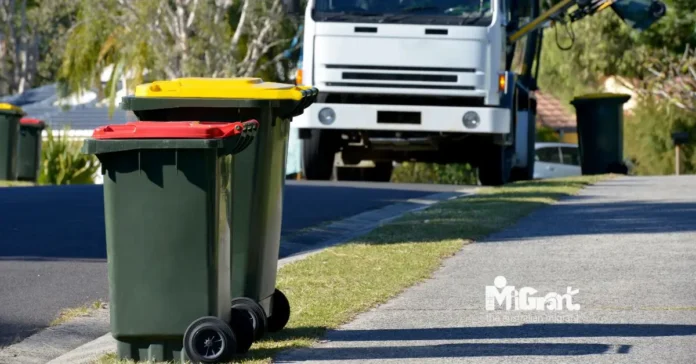When I first migrated to Australia in 1990, I felt like I had stepped into an entirely different world. The excitement of a new beginning quickly gave way to homesickness. Everything was unfamiliar—the people, the language, even the food. It was my wife who suggested that I listen to a program in Tagalog on 3ZZZ, a local multicultural community radio station in Melbourne. One day, I learned that one of the volunteer broadcasters, Andy, was from my home region in Bicol, Philippines. I decided to call him, and we arranged to meet in the city.
What I thought would be a simple coffee chat turned into something life-changing. That day, I found myself sitting with other Filipino-Australians, many of them meeting for the first time, to discuss the possibility of starting a Filipino newspaper. I became one of the co-founders of The Philippine Times, which is now celebrating its 34th anniversary. Looking back, I realise how vital ethnic media has been—not just for me, but for countless migrants trying to find their place in a new country.
What Is Ethnic Media?
Ethnic media includes publications, radio programs, TV shows, and online platforms created by and for specific cultural or linguistic communities. They serve as bridges, helping migrants navigate life in a new country while staying connected to their roots. For someone like me, hearing my native language on the radio or reading news about the Philippines felt like a lifeline when everything else around me was so foreign.
The Unique Value of Ethnic Media for Migrants
1. Culturally Relevant Information
Ethnic media offers content tailored specifically for communities like ours. Whether it’s news from the Philippines or updates on immigration policies in Australia, these platforms provide vital information that mainstream media often overlooks.
When I was new in Australia, The Philippine Times became a trusted resource for Filipinos. We published articles on everything from legal rights to community events, and this helped many of us navigate our new lives.
2. Social Integration and Representation
Ethnic media creates a sense of belonging. When migrants see their culture and experiences represented, it helps them feel less isolated. For example, during the COVID-19 pandemic, community radio stations like 3ZZZ provided essential health updates in various languages, ensuring everyone could stay informed.
Case Study: Anita, a nurse from Delhi, shared how reading news in Hindi online helped her understand the JobKeeper scheme, which she initially found confusing. She particularly appreciated the resources provided by SBS in Hindi, which offered clear, culturally relevant explanations. She said, “It felt like someone was speaking directly to me in a way I could understand.”
3. Practical Guidance
Migrants often face challenges like finding housing, employment, or understanding local healthcare systems. Ethnic media steps in with guides and resources tailored for these needs.
In my early days, I remember reading articles about how to open a bank account and apply for Medicare. These guides made navigating life in Australia much easier.
Challenges Faced by Ethnic Media
Despite their importance, ethnic media outlets face numerous challenges.
1. Funding Struggles
Most ethnic media organisations rely on community donations, small-scale advertising, or government grants. This makes it difficult to sustain operations, especially as media consumption shifts online.
2. Limited Reach
Ethnic media must compete with well-funded mainstream outlets. Adapting to digital trends can also be a struggle for smaller publications and radio programs.
Why Ethnic Media Deserves More Support
1. Fostering Inclusion
Ethnic media promotes multiculturalism by showcasing the diversity of experiences within migrant communities. It also helps combat stereotypes by offering authentic, nuanced stories.
2. Public Service Value
During crises, ethnic media plays a crucial role. I remember during the bushfire season, local Filipino radio programs provided updates on evacuation centres and relief efforts in Tagalog.
3. Strengthening Democracy
By giving a voice to underrepresented communities, ethnic media contributes to a more inclusive and equitable society.
Case Study: Ahmad, a refugee from Syria, shared how his local Arabic newspaper helped him find legal assistance and a support network in Melbourne. He said, “It was more than news; it was a guide to survival.”
How Governments and Organisations Can Help
Ethnic media can’t thrive without support. Here are some ways governments and organizations can help:
- Policy Support:
- Increase grants or funding opportunities for ethnic media outlets.
- Include ethnic media in government advertising campaigns.
- Capacity Building:
- Provide training for ethnic media professionals to adapt to digital platforms.
- Community Collaboration:
- Foster partnerships between ethnic media and local organisations to amplify their reach.
My Personal Journey with Ethnic Media
Co-founding The Philippine Times was one of the most rewarding experiences of my life. Over the years, it has grown from a small newspaper to a trusted platform for Filipino migrants in Australia. We’ve shared stories of triumph, challenges, and everything in between.
One story that stands out is that of Nanay Aurelia, a 96-year-old suman maker whose story of resilience inspired our readers. Her journey of preserving Filipino traditions while thriving in a new country reminded us all why ethnic media matters—it celebrates the richness of our culture while helping us integrate into Australian society.
Not limited to news
Ethnic media is more than just news—it’s a lifeline, a bridge, and a home away from home. It empowers migrants to navigate their new lives, stay connected to their roots, and build communities.
As Australia continues to grow as a multicultural society, it’s time to recognise the vital role ethnic media plays and give it the support it deserves. Whether you’re a government official, a business owner, or a community member, you can make a difference. Subscribe, donate, or advertise with your local ethnic media outlet. Together, we can ensure these platforms continue to thrive and serve the communities that need them most.
So, what’s your ethnic media story? I’d love to hear how it has impacted your life. Let’s keep the conversation going and support the voices that keep our communities connected.
Looking to apply for an Australian visa or explore migration opportunities? We can connect you with a trusted Registered Migration Agent who specializes in student, skilled worker, partner, family, and visitor visas. Whether you're planning to study, work, or settle in Australia, they’ll guide you through every step of the process. Send your inquiries to themigrant.au@gmail.com, and we’ll help you get in touch with the right experts for your visa and migration needs!





